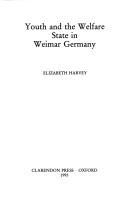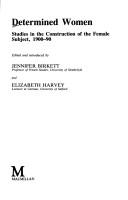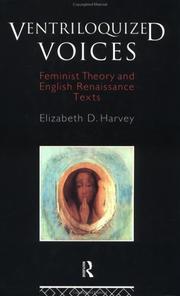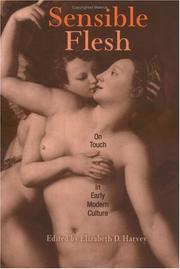| Listing 1 - 10 of 26 | << page >> |
Sort by
|

ISBN: 0198204140 Year: 1993 Publisher: Oxford Clarendon
Abstract | Keywords | Export | Availability | Bookmark
 Loading...
Loading...Choose an application
- Reference Manager
- EndNote
- RefWorks (Direct export to RefWorks)
Welfare state --- Youth --- Government policy --- Services for --- Germany --- Social policy.
Book
Year: 1993 Publisher: Oxford New York Clarendon Press Oxford University Press
Abstract | Keywords | Export | Availability | Bookmark
 Loading...
Loading...Choose an application
- Reference Manager
- EndNote
- RefWorks (Direct export to RefWorks)

ISBN: 0415127939 Year: 1995 Publisher: London Routledge
Abstract | Keywords | Export | Availability | Bookmark
 Loading...
Loading...Choose an application
- Reference Manager
- EndNote
- RefWorks (Direct export to RefWorks)

ISBN: 0333448391 Year: 1991 Publisher: London Macmillan
Abstract | Keywords | Export | Availability | Bookmark
 Loading...
Loading...Choose an application
- Reference Manager
- EndNote
- RefWorks (Direct export to RefWorks)
Thematology --- Literature --- anno 1900-1999

ISBN: 0415067324 Year: 1992 Publisher: London New York Routledge
Abstract | Keywords | Export | Availability | Bookmark
 Loading...
Loading...Choose an application
- Reference Manager
- EndNote
- RefWorks (Direct export to RefWorks)
Point de vue (Littérature) --- Point of view (Literature) --- Point of view (Literatuur) --- Point-of-view (Literature) --- Rôle selon le sexe dans la littérature --- Seksuele rolpatronen in de literatuur --- Sex role in literature --- Authorship --- English literature --- Feminism and literature --- Women --- Women and literature --- Art d'écrire --- Littérature anglaise --- Féminisme et littérature --- Femmes et littérature --- Femmes dans la littérature --- Sex differences --- Men authors --- History and criticism --- Theory, etc --- History --- Historiography --- Différences entre sexes --- Histoire et critique --- Théorie, etc --- Histoire --- 82:396 --- 820 "15/16" --- -Feminism and literature --- -Point of view (Literature) --- -Women and literature --- -Authorship --- -English literature --- -Women --- -Human females --- Wimmin --- Woman --- Womon --- Womyn --- Females --- Human beings --- Femininity --- British literature --- Inklings (Group of writers) --- Nonsense Club (Group of writers) --- Order of the Fancy (Group of writers) --- Authoring (Authorship) --- Writing (Authorship) --- Literature --- Fiction --- Narration (Rhetoric) --- Persona (Literature) --- Literatuur en feminisme --- Engelse literatuur--?"15/16" --- -History --- -Sex differences --- Male authors --- -History and criticism --- England --- -Technique --- Women authors --- -Literatuur en feminisme --- -82:396 --- 820 "15/16" Engelse literatuur--?"15/16" --- 82:396 Literatuur en feminisme --- -82:396 Literatuur en feminisme --- Human females --- Art d'écrire --- Littérature anglaise --- Féminisme et littérature --- Point de vue (Littérature) --- Rôle selon le sexe dans la littérature --- Femmes et littérature --- Femmes dans la littérature --- Différences entre sexes --- Théorie, etc --- Male authors&delete& --- History and criticism&delete& --- History&delete& --- Technique --- Early modern, 1500-1700 --- Theory, etc. --- 1450-1600 (Renaissance) --- 16th century --- 17th century --- English literature - Early modern, 1500-1700 - History and criticism - Theory, etc. --- Women - England - History - Renaissance, 1450-1600 - Historiography. --- English literature - Men authors - History and criticism - Theory, etc. --- Feminism and literature - England - History - 16th century. --- Feminism and literature - England - History - 17th century. --- Women and literature - England - History - 16th century. --- Women and literature - England - History - 17th century. --- Authorship - Sex differences. --- Sex role in literature.
Book
ISBN: 1857284852 Year: 1996 Volume: *5 Publisher: London UCL Press
Abstract | Keywords | Export | Availability | Bookmark
 Loading...
Loading...Choose an application
- Reference Manager
- EndNote
- RefWorks (Direct export to RefWorks)
Feminism --- Germany --- History --- Sex role --- Power (Social sciences) --- FEMMES --- SEXUALITE --- MARIAGE --- ALLEMAGNE --- 16E-20E SIECLES --- HISTOIRE --- CONDITIONS SOCIALES

ISBN: 0812218299 9780812218299 0812236939 0812293630 Year: 2020 Publisher: Philadelphia : University of Pennsylvania Press,
Abstract | Keywords | Export | Availability | Bookmark
 Loading...
Loading...Choose an application
- Reference Manager
- EndNote
- RefWorks (Direct export to RefWorks)
This ground-breaking interdisciplinary collection explores the complex, ambiguous, and contradictory sense of touch in early modern culture. If touch is the sense that mediates between the body of the subject and the world, these essays make apparent the frequently disregarded lexicons of tactility that lie behind and beneath early modern discursive constructions of eroticism, knowledge, and art. For the early moderns, touch was the earliest and most fundamental sense. Frequently aligned with bodily pleasure and sensuality, it was suspect; at the same time, it was associated with the authoritative disciplines of science and medicine, and even with religious knowledge and artistic creativity.The unifying impulse of Sensible Flesh is both analytic and recuperative. It attempts to chart the important history of the sense of touch at a pivotal juncture and to understand how tactility has organized knowledge and defined human subjectivity. The contributors examine in theoretically sophisticated ways both the history of the hierarchical ordering of the senses and the philosophical and cultural consequences that derive from it.The essays consider such topics as New World contact, the eroticism of Renaissance architecture, the Enclosure Acts in England, plague, the clitoris and anatomical authority, Pygmalion, and the language of tactility in early modern theater. In exploring the often repudiated or forgotten sense of touch, the essays insistently reveal both the world of sensation that subtends early modern culture and the corporeal foundations of language and subjectivity.
Feeling --- Haptic sense --- Haptics --- Haptonomie --- Haptonomy --- Sens et sensation --- Senses and sensation --- Tactile perception --- Tastzin --- Touch --- Toucher [Le ] --- Zintuigen en gewaarwording --- Touch. --- Senses and sensation. --- Toucher --- Sens et sensations --- Tactual perception --- Somesthesia --- Sensation --- Sensory biology --- Sensory systems --- Knowledge, Theory of --- Neurophysiology --- Psychophysiology --- Perception --- Cultural Studies. --- Literature. --- Medieval and Renaissance Studies.
Book
ISBN: 9781487592837 Year: 1984 Publisher: Toronto
Abstract | Keywords | Export | Availability | Bookmark
 Loading...
Loading...Choose an application
- Reference Manager
- EndNote
- RefWorks (Direct export to RefWorks)
Article
Abstract | Keywords | Export | Availability | Bookmark
 Loading...
Loading...Choose an application
- Reference Manager
- EndNote
- RefWorks (Direct export to RefWorks)
Multi
ISBN: 9780812293630 0812293630 Year: 2020 Publisher: Philadelphia : University of Pennsylvania Press,
Abstract | Keywords | Export | Availability | Bookmark
 Loading...
Loading...Choose an application
- Reference Manager
- EndNote
- RefWorks (Direct export to RefWorks)
This ground-breaking interdisciplinary collection explores the complex, ambiguous, and contradictory sense of touch in early modern culture. If touch is the sense that mediates between the body of the subject and the world, these essays make apparent the frequently disregarded lexicons of tactility that lie behind and beneath early modern discursive constructions of eroticism, knowledge, and art. For the early moderns, touch was the earliest and most fundamental sense. Frequently aligned with bodily pleasure and sensuality, it was suspect; at the same time, it was associated with the authoritative disciplines of science and medicine, and even with religious knowledge and artistic creativity.The unifying impulse of Sensible Flesh is both analytic and recuperative. It attempts to chart the important history of the sense of touch at a pivotal juncture and to understand how tactility has organized knowledge and defined human subjectivity. The contributors examine in theoretically sophisticated ways both the history of the hierarchical ordering of the senses and the philosophical and cultural consequences that derive from it.The essays consider such topics as New World contact, the eroticism of Renaissance architecture, the Enclosure Acts in England, plague, the clitoris and anatomical authority, Pygmalion, and the language of tactility in early modern theater. In exploring the often repudiated or forgotten sense of touch, the essays insistently reveal both the world of sensation that subtends early modern culture and the corporeal foundations of language and subjectivity.
Literature --- Senses and sensation. --- Touch.
| Listing 1 - 10 of 26 | << page >> |
Sort by
|

 Search
Search Feedback
Feedback About UniCat
About UniCat  Help
Help News
News